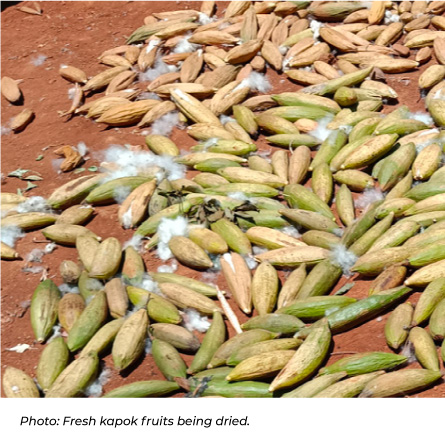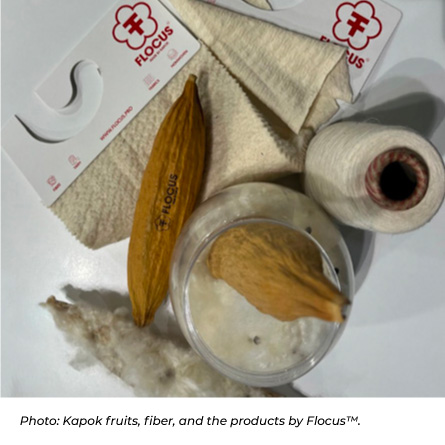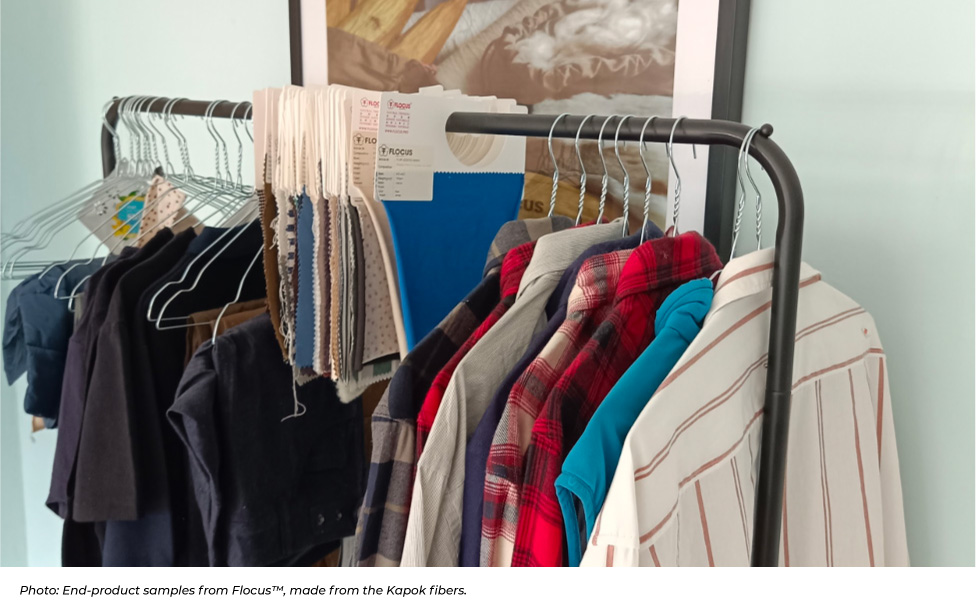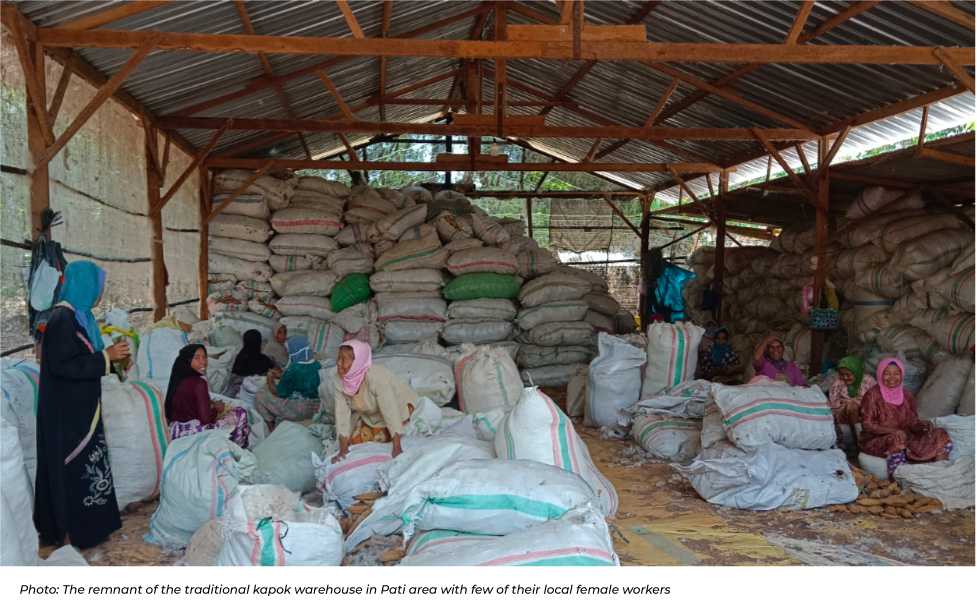- 9 January 2024
- by trianugerah
- News
Java Randu: A Resilient Journey from Decline to Sustainable Innovation
Just a few months ago, we had the opportunity to connect with one of our valued clients and partners deeply involved in the cultivation of Kapok, locally known as ‘Randu.’ Our exploration into the origin and characteristics of Kapok took us on a journey with Mr. Iwan, managing Flocus™ ’s activities in Indonesia. He also serves as the head of KRAF, Kapok Regenerative Agriculture Forestry, a foundation supporting the recultivation of the Kapok tree.
Kapok, also famous as Java Randu , once held the spotlight as the go-to material for stuffing mattresses worldwide. However, with the shift towards spring mattresses and the introduction of fossil fuel based materials and foams, its demand dwindled significantly. Just before the 2000s, annual production was circa 80,000 tonnes and plummeted to a mere 800 tonnes today, leading to a loss of economic value. Along the northern coast of Java, pride turned to dismay as Kapok trees were mass-cut for over two decades, making way for more commercially lucrative hardwood trees.
Interestingly, the heart of the Kapok industry persisted in the Kudus, Pati, Jepara area, surrounding the Muria mountain. This region, boasting kapok forests, factories, and remnants of old traders, has become a stronghold for the last surviving champions of the Kapok trade. Despite its decline in the mattress industry, Kapok remains a versatile material, finding use in insulation and proofing applications. Yet Kapok fruit left no waste, the seeds are known for the oil, even high in protein and extracted for the animal feed. The last leftover, the husk, the hard outer skin from the fruit, also sold and processed into briquettes.


In 2016, Flocus™’innovation has breathed new life into Kapok. A patented process now enables the transformation of short Kapok fibers into yarn, and subsequently, fabrics. This innovation positions Kapok as the new sustainable cotton, offering an alternative to industrial cotton, which is less sustainable as well as animal fibers and synthetic fibers. This opens up the whole opportunity to be the sustainable source for fabrics. Kapok, originating from a resilient hardwood tree, stands in contrast to water-intensive and insecticide-dependent shrub-type cotton plants. The Kapok tree, cultivated widely for decades, requires minimal maintenance, demonstrating resilience to heat and rain, with a lifespan of up to 100 years. Once unproductive, these hardwood trees can be sustainably harvested for wood. Visiting the Flocus™ factory in the area, we also witnessed the modern automated process that introduces a sustainable approach to harvesting and processing within the existing supply-chain players.

Despite the challenges of securing a steady supply of Kapok, Mr. Iwan emphasized the need for careful planning in expanding production. Now, Mr. Iwan and the KRAF foundation are dedicated to promoting the use of Kapok trees in reforestation efforts and advocating for intercropping with other commodities. This approach aims to maximize the economic potential of Kapok fruits, provide shade for main crops, require minimal maintenance, and avoid competition for water and nutrients in the soil.
PasarMIKRO is actively engaging in discussions with Flocus™ and KRAF, exploring ways to collaborate across various activities with our other commodity communities to elevate their shared cause. How we can support their reforestation effort, provide extra benefits to PasarMIKRO communities (e.g. coffee farmers), and prepare the supply chain route to Flocus™ to ensure the offtaking of the outputs.









